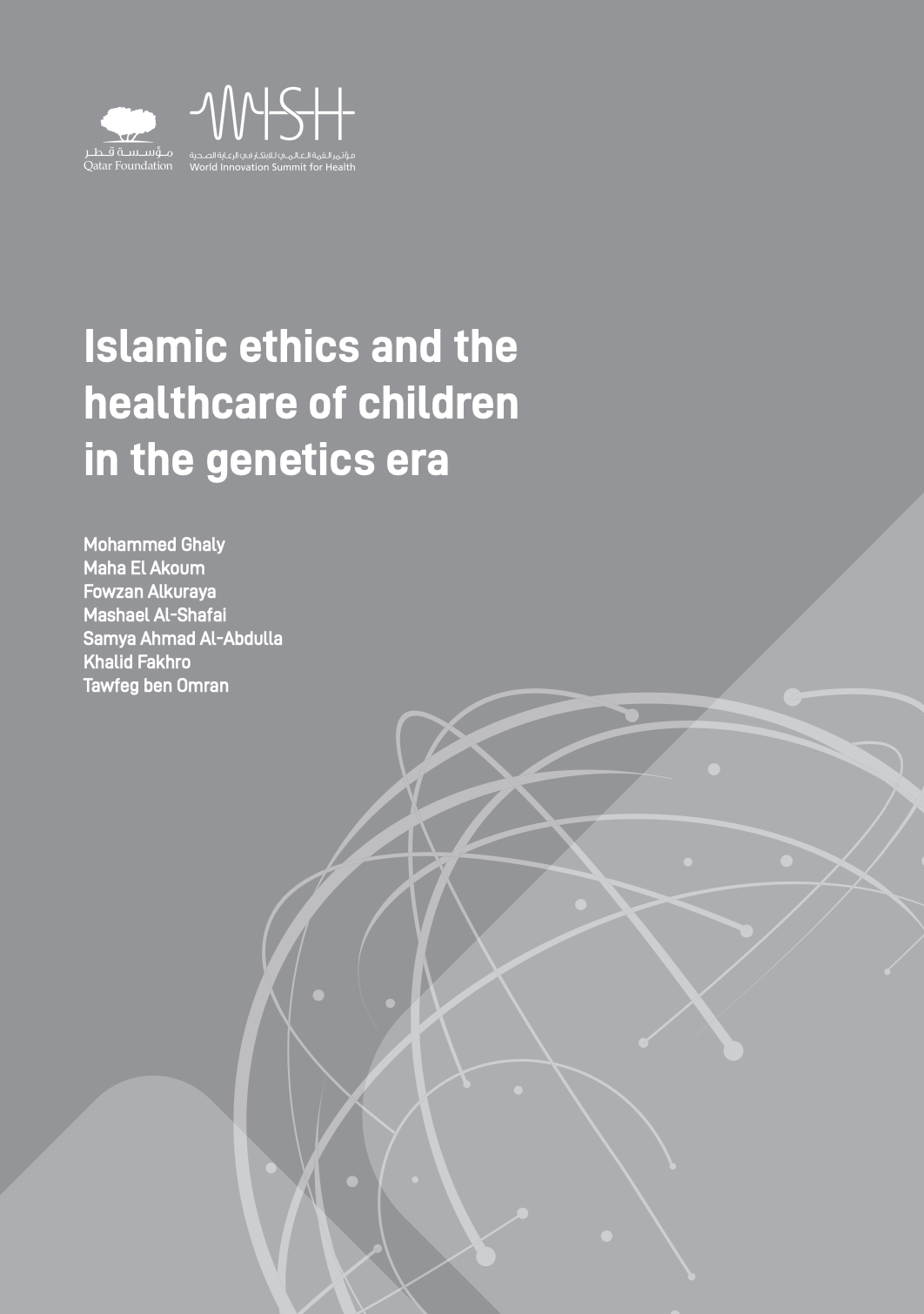Islamic ethics and the healthcare of children in the genetics era
Mohammed Ghaly, Maha El Akoum, Fowzan Alkuraya, Mashael Al-Shafai, Samya Ahmad Al-Abdulla, Khalid Fakhro, Tawfeg ben Omran
Advancements in genetics and genomics have provided great opportu- nities for improving children’s health and the overall wellbeing of their families. These opportunities, however, are often intertwined with complex ethical questions and challenges that need to be examined in light of people’s moral and religio-ethical convictions. This report focuses on the ethical questions triggered by four main types of genetic testing, namely: premarital; preimplantation; prenatal; and newborn. From the 1990s onward, Muslim religious scholars and biomedical scientists, with the help of transnational Islamic institutions, have been engaged in intensive deliberations on the ethical aspects of genetics and genomics, including these tests. The analyses, recom- mendations and conclusions provided in this study are based on extensive and critical reading of these deliberations. To put the Islamic bioethical perspectives in their broader context, we also included a multidisciplinary review of the latest biomedical knowledge and the relevant international bioethical discourse.

